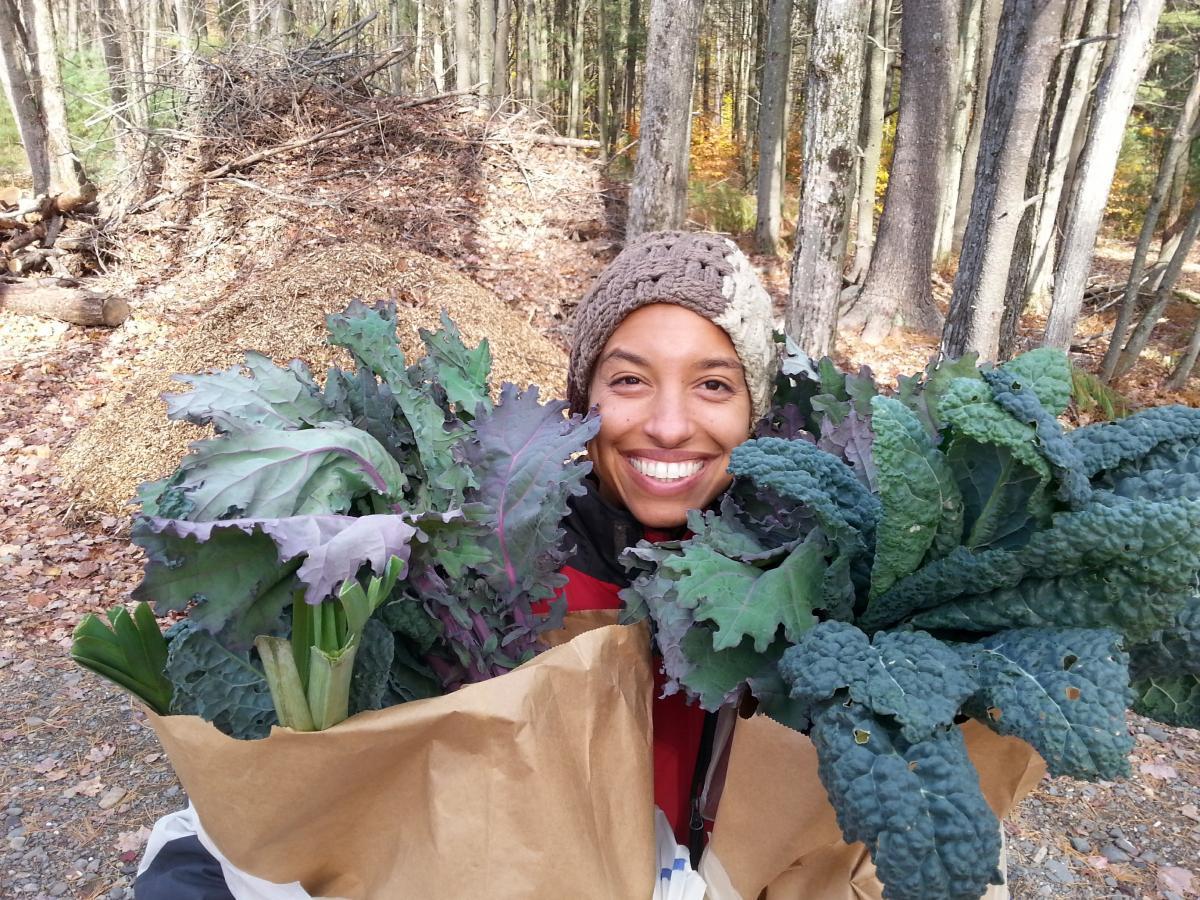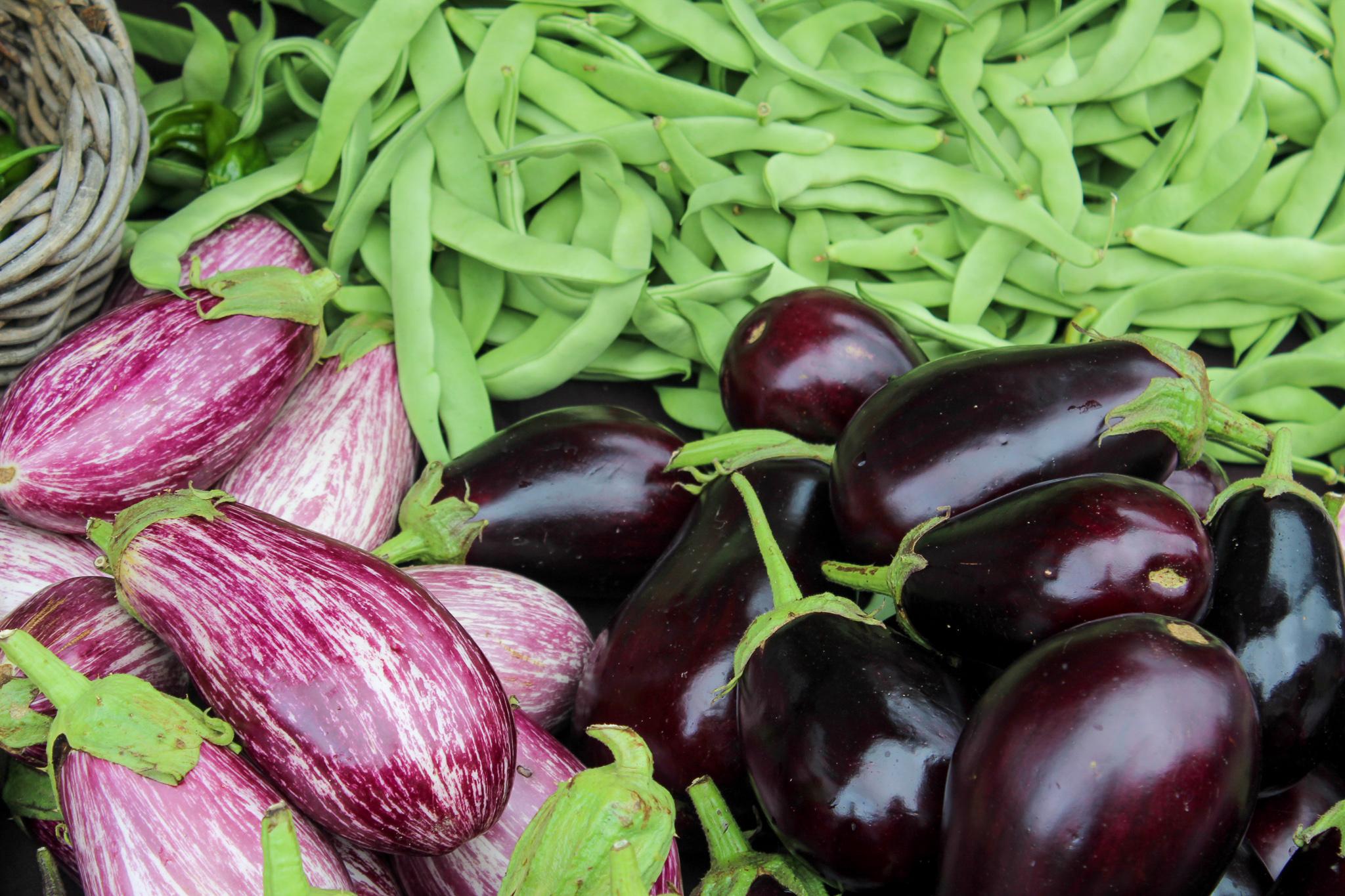Leah Penniman is the founder of Soul Fire Farm and the author of Farming While Black: African Disasporic Wisdom for Farming & Food Justice. We are so excited to present her as our keynote speaker on Saturday, February 16th at our 37th Annual Winter Conference.
This interview was recorded and transcribed in January 2019.

NOFA-VT: To start, can you explain to our members what Soul Fire Farm is all about?
LEAH: Soul Fire Farm is a community farm in Grafton, NY, about 40 minutes outside of Albany. The farm started in the fall of 2010 with a commitment to ending racism and injustice in the food system. We are about a 9-member team and we do this work through three main areas. The first is to intensively cultivate and steward a couple of acres of land in vegetables and a couple more in pastured poultry, herbs, and orchards, using Afro-Indigenous ancestral practices that restore biodiversity and sequester carbon. We do this while growing food for our community. We box up our food through an ujaama—which means cooperative economics in Ki Swahili—we box that food up and distribute it every Wednesday from June through November to folks in the community who need it most. We’re working with people living under food apartheid, which is a system of segregation that relegates some people to food opulence and other people to food scarcity. We use a sliding scale model, so people pay what they can afford, including a number of solidarity shares, which go to refugees, immigrants, new Americans, and folks impacted by incarceration. So that’s the first and foundational program.
The second thing that we work on is educating, training and supporting the next generation of indigenous people of color farmers. We have a number of programs ranging from day-long workshops to our flagship 50-hour week-long immersion training, to full season apprenticeships. We’ve helped train over 500 new farmers at this point from communities who have been historically marginalized in the food system.
Then, finally, we are organizers. So we collaborate with networks—regionally and nationally—to work on the reparation of land and resources, along with changing policies so that farm workers get a fair shake under the law and are recognized for contributing well over 80% of the food that we eat. We’re working to shift the farm bill so that there are appropriate allocations for not only training new farmers of color but also for the SNAP EBT program so that consumers have access to life giving food. Notably, one of our projects in that reparations and policy sphere is a regional land trust, a black and indigenous led project working to receive land donations and ReMatriate them to communities from whom they were stolen.
NOFA-VT: How did you get started, and what drives you to do the work you do?
LEAH: I started getting involved with farming and food justice at age 16. I got a job with The Food Project in Boston, Massachusetts, and really got hooked on that intersection between stewarding the environment and caring about social justice in the community. I've been involved in farming and food ever since.
What drives me to do the work is having personally experienced and also witnessed in others the healing connection when people get to have a dignified relationship with land, one that’s based on agency and not exploitation. To see that kind of impact that has on our community is motivating for me.
NOFA-VT: In the last chapter of your new book, Farming While Black, you write specifically about tools for white people to engage in dismantling racism in the food system. Can you share a few key parts from this chapter with our members who identify as white?
LEAH: Definitely, check that out! I think it is really important to recognize that black and brown people did not create a racist food system, so it is incumbent on all members of the community to participate in transforming that system into one that is just and sustainable for all people. There are a number of ways we can do that. There’s the kind of provocative, but useful, term of white followers which talks about the importance of white people taking the lead of those impacted by racism when it comes to race issues. So rather than going into a community of color and saying “you know what you all need is a cooking class or a mobile market” or so on, to pay attention to what’s already happening there and with permission and leadership of folks who are already doing the work on the ground. And we are – there is already work on the ground – to find out how to plug in and support that work rather than replicating the "white savior complex".
The other thing I would say is to take up a reparations framework, to understand that right now the fact that we have a 16:1 wealth gap between white and black folks is not an accident of history, it has to do with a whole series of policies that are termed "white affirmative action." Everything from the Homestead Act to the GI bill, and Red-lining, and so on. So it is very important that we think about how to return the resources that were stolen.
NOFA-VT: You’ve been traveling and speaking a lot lately! (We assume this might be exhausting!) What do you enjoy about this aspect of your work? What is challenging about it?
LEAH: Something that I really enjoy about traveling and speaking is getting to look into the power of the Griot Tradition of West Africa, which is a storytelling tradition. And seeing that having a chance to tell the story for example of our ancestral mothers who braided seeds in their heir before being forced to board transatlantic slave ships and that being the seed for a new future on soil. Getting to tell stories is an opportunity to more hearts and minds and to catalyze action, and so that’s a beautiful thing to see.
What’s challenging is that I really do love the land and love to be home, and with my family. It's dizzying, the movement that’s involved.
NOFA-VT: What's next on your horizon?
LEAH: Were just gearing up for the season. I’m so excited that in addition to doing the training programs we've always done, we’re adding a series of more advanced workshops that will be offered in Spanish to increase inclusion of people who have been made farm workers by our society: in business and marketing and management training. So that’s super exciting. I'm also excited about the land trust work, and actually in a few minutes I'm going to be getting on a training call to support our new coordinators and get them oriented to this very, very important work of restoring access to land for people who have been dispossessed.

